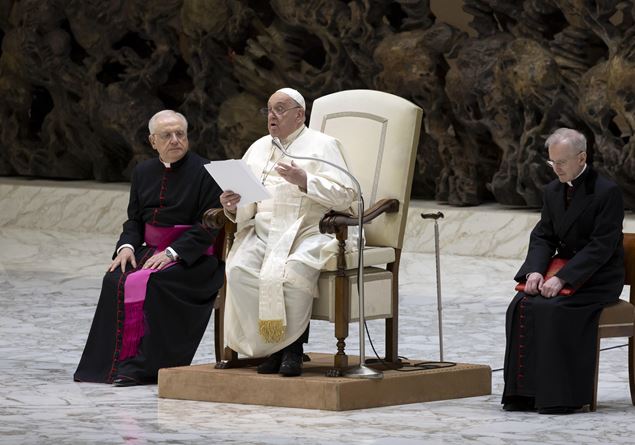
Dear reader friends,
there Treccani chose the “respect” as word of the year 2024. «Feeling and attitude of respect, esteem and deference, devoted and often affectionate, towards a person», we read in the lemma of the famous dictionary, «concrete manifestation of this feeling through actions or words». The mind immediately goes to the many cases in the news that have made totally opposite attitudes evident: from the horrendous story of Gisele Pelicotdrugged and abused for years by her husband and dozens of other men, until the tragedy of Giulia Cecchettin which shocked us (and also moved us, thanks to the words of his father Gino), gradually passing through the long trail of feminicides which have dotted this past year (over 100 cases registered). And then: the lack of respect (for life) of the 40 candidates for the “death row” in the United States, for which pardon is being requested, with the commutation of the sentence to life imprisonment; the many teenagers who walk around with a knife in their backpack… The list goes on.
And we can only agree with the statement of the co-directors of the Treccani vocabulary, Valeria Della Valle And Giuseppe Patotaaccording to which «the term respect… must today be re-evaluated and used in all its nuances, precisely because the lack of respect is at the basis of the violence exercised daily against women, minorities, institutions, nature and the animal world ».
Is there a Christian word that falls along this line? I recall one, to which Pope Francis wanted to dedicate a document in 2024: “dignity”. In Infinite dignity (published last April 2) the Holy Father, among the three reasons which in the Christian vision are at the basis of respect for the dignity of every man and woman, recalled theincarnation of the Son of God (n. 19), which we recently celebrated during the Christmas season. A «new principle», brought by Christianity, into the panorama of history, that «according to which the human being is all the more “worthy” of respect and love the more weak, miserable and suffering he is».
The cases that I mentioned at the beginning, and many other events of blind violenceremind us that respect for this “infinite dignity”, in concrete terms, is not an obvious thing. But it’s at the heart of Gospel and we all remember the faces of many believers, capable of this “absolute” respect.
Today, working to build a more respectful humanity – of others, of creation – means having courage and exercise the virtue of hope. Courage like what Gisèle had, not to remain silent and to denounce, where one is a witness or victim of injustice. But it also takes the courage of families, parishes, associations to train people for whom “respect” is not just a slogan but a real value, embodied in life.
Educate to respect it also means reflecting on our own together contradictions: how can one, for example, applaud the misogynistic songs of a well-known trapper (the case these days) and then be indignant at the violence against women?
Christianity can contribute, together with others in society, to rebuilding, with its own values, one culture of life. Faced with the temptation to think that things are irreversible and that we are condemned to a drift towards the worse, we also need to hope. Password of this Jubilee.







